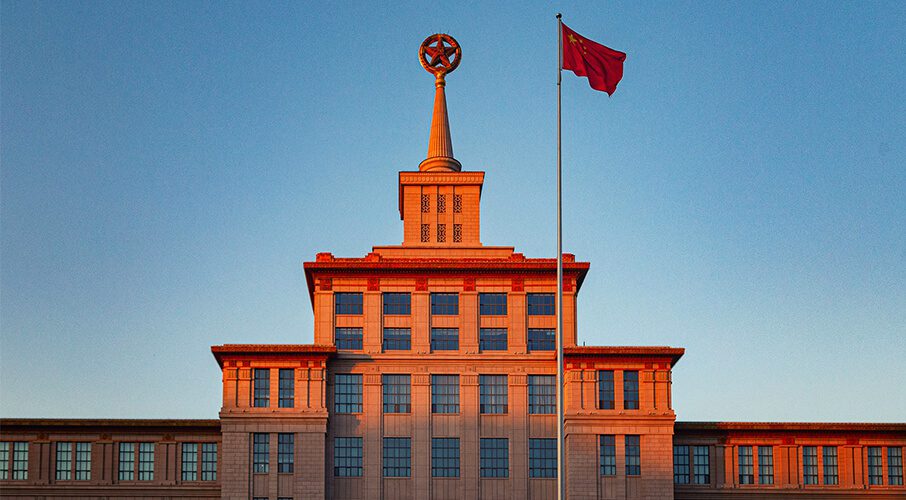
This article originally appeared in the Japan Times.
By Stephen Nagy, March 11, 2022
This week an increasing number of prominent businesses have announced partial or full halts to business operations in Russia.
The businesses include McDonald’s, Apple, Netflix, Shell, Visa, MasterCard and Disney among others. This self-restraint is meant to put pressure on Russia and its very unpopular invasion of Ukraine by inflicting economic damage on Russia, President Vladimir Putin and his supporters.
The results have been notable. The economic fallout is causing Russia’s economy to contract and it’s a currency to devalue. Systematically, Russia is being cut off from the outside world.
Whether these business pull-outs, alongside the removal of numerous Russian banks from the SWIFT system, the banning of Russian airlines flying over Europe, the confiscation of oligarchs’ so-called super yachts and other overseas assets will have an impact on President Putin and the Kremlin’s calculus for its invasion of Ukraine is yet to be seen.
The financial and business pressures on Russia raise interesting and inconvenient questions about why businesses have not done something similar to China.
Beijing has detained more than a million Uyghurs in re-education camps. It abrogated the 1984 Sino-British Joint Declaration by imposing the National Security Law in Hong Kong. This has destroyed Hong Kong’s civil society, freedom of press, rule-of-law and the one-Country/two systems’ model. This has occurred at the same time as bellicose rhetoric and actions toward Taiwan and the building and militarizing of artificial islands in the South China Sea has occurred unimpeded.
The answers are straightforward. First, Russia today or in the future does not represent the economic opportunity that China is and will be with its burgeoning middle class. Second, China has surgically and enthusiastically used market access and punitive measures to sanction any business that engages in behavior or voices views that the Chinese Communist Party deems inappropriate.
Disney is a case in point. It no longer produces films critical of China or the Chinese Communist Party, as Isaac Stone Fish writes in his book “America Second.” Today, it would be unthinkable to produce a film such as Brad Pitt’s “Seven Years in Tibet” or other films critical of the central government’s treatment of minorities within the Chinese context.
Yes, Disney, the home of Mickey Mouse to Disneyland has self-censored to maximize its acceptance and profits in China. It has even produced the 2020 American fantasy action “Mulan” in Xinjiang province after numerous nonpartisan reports by the Australian Strategic Policy Institute (ASPI) and Mercator Institute for China Studies highlighted in detail what was happening to the Uyghur Muslim minority group.
Disney is not alone, Netflix has also banned or removed what could be interpreted as programs critical of China or the Party.
Furthermore, according to ASPI’s report “Uyghurs for sale: ‘Re-education’, forced labor and surveillance beyond Xinjiang,” there are at least “82 foreign and Chinese companies potentially directly or indirectly benefiting from the use of Uyghur workers outside Xinjiang through abusive labor transfer programs as recently as 2019.” These included some of our favorite brands including Nike, Uniqlo and even Victoria’s Secret. That is some secret!
Should we differentiate Russia, who has invaded Ukraine, and China, which has an established track record of using economic coercion toward Australia, Japan, Canada, South Korea and others? It has also engaged in hostage diplomacy with the arrest of Michael Kovrig and Michael Spavor in December 2018, but also other nationals from Australia, Vietnam and of course Japan.
Does this mean that the United States and allies and their business communities will not stand up against egregious human rights violations and strategic interests if their business interests are significant enough in a particular country, in this case, China?
These are difficult questions to answer as they are inconvenient truths. As long as China remains a significant economic partner for Japan, Canada, Australia, the United States and others, it will be very difficult to apply financial sanctions to limit the access of markets and remove China from the SWIFT system — as we’ve seen with Russia — in the case of some kind of contingency over Taiwan, the East and South China Seas, or more egregious violations of human rights domestically.
The economic tools that have been deployed against Russia are having an increasingly deleterious effect on the Russian economy, citizens and oligarchs that support Putin. They are likely to be the same tools that will be wielded on China in the case of a Taiwan crisis.
What are the lessons that China has learned from the united efforts of the United States, the EU, Japan, Canada, Australia and other countries to freeze out the Russians?
First, China will invest significantly in making its country more robust and resilient against the use of the financial system against its markets. This includes accelerating the digitization of the yuan and its use in conjunction with the Belt Road Initiative.
Second, China will invest in more indigenous production of technologies. Dual use technologies will be of a priority as the United States and allies move to cut off technology supply chains to both China and Russia.
We don’t know if China will be able to innovate and provide for the technological needs of the Chinese market at this stage. However, Kai-Fu Lee, author of “AI Superpowers” suggests that China can be technologically savvy and has the data and regulator ecosystem to be innovative in some sectors like artificial intelligence.
Notwithstanding, for leaders in Beijing, there is no question that dual use technology remains the jugular for the Chinese economy if it plans to continue to develop and upgrade its economy.
Third, China will deepen its economic partnerships with countries in its periphery ensuring that these relationships remain asymmetric. This allows Beijing to use its economy as leverage to pressure states to adhere to Beijing’s political will.
Fourth, we are likely to see an increasing number of economic coercion cases targeted at allies of the United States to divide Washington from its allies and partners in the Indo-Pacific.
Whether this will be successful, we have to look at the past attempts at economic coercion to see if it has really garnered the desired effects by Beijing. The MacDonald Laurier Institute’s Duanjie Chen, in her report “Countering China’s Economic Coercion,” has shown that economic coercion against Japan, Australia, Canada, South Korea and other states has resulted in the selective diversification of trade away from China. It has also resulted in investment in the selective diversification of supply chains in and out of China and a shift in thinking about the relationship between national security and economic security.
States now are engaged in a process of developing economic statecraft, a statecraft that employs the economy to proactively deter, defend and potentially discipline belligerent states by working with like-minded countries.
Looking at the policy response of the United States, the EU, Japan, Canada, Australia and others to Russia’s invasion of Ukraine, they have been bolstered by the voluntary participation of prominent businesses around the world. This unity was not expected in Moscow — nor was it expected in Beijing.
In the future, the Achilles heel of economic statecraft directed toward China in a potential conflict will be whether businesses and the financial sector would prioritize politics and security over profits. Past behavior, however, suggests no unity in the face of overt belligerence against Ukraine, meaning that the answer could be yes in the case of clear cut act of aggression in the Indo-Pacific.
Stephen Nagy is a senior fellow at the Macdonald-Laurier Institute.





